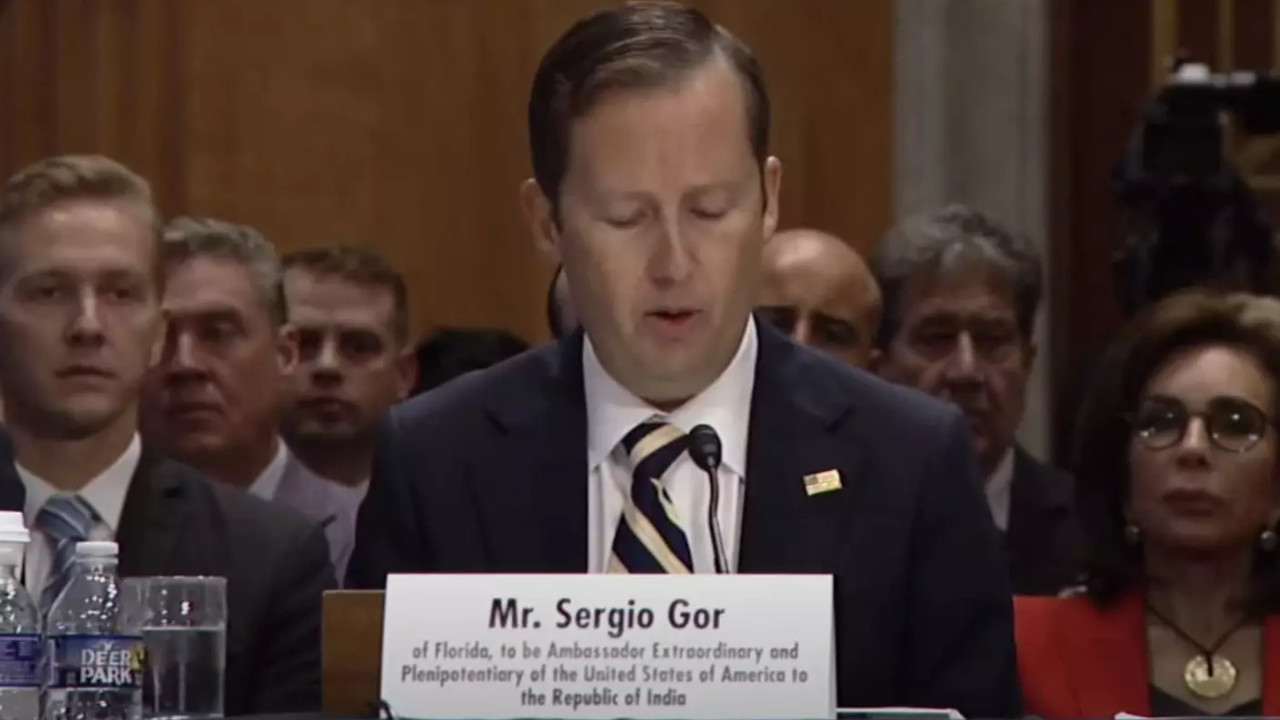India’s Ascendant Role: A Strategic Partnership Under Scrutiny
The winds of geopolitical strategy are shifting, and all eyes are on the evolving relationship between the United States and India. As Sergio Gor, the nominee for a key diplomatic post under a potential second Trump administration, articulated, India isn’t just an ally; it’s a strategic partner. This designation carries weight, signaling a deepening commitment between the two nations amidst a complex global landscape.
What elevates India to this pivotal position? It’s a confluence of factors, including its burgeoning economy, its democratic values, and its increasingly assertive role in regional security. But the path forward isn’t without its challenges.
One of the most pressing concerns, as highlighted by Gor, revolves around India’s energy policy, particularly its reliance on Russian oil. Since the onset of the conflict in Ukraine, many Western nations have significantly curtailed their dependence on Russian energy sources as a means of applying economic pressure. India, however, has continued to import Russian oil, albeit often at discounted prices. This decision, while economically pragmatic for India, raises eyebrows in Washington and among its allies.
The core issue boils down to this: can a strategic partnership truly thrive when one partner maintains significant economic ties with a nation perceived as a geopolitical adversary? It’s a question that demands careful consideration and nuanced diplomacy.

Navigating the Energy Tightrope: India’s Balancing Act
India’s perspective is understandable. With a population of over 1.4 billion and a rapidly growing economy, access to affordable energy is paramount. Diversifying energy sources takes time and significant investment. Cutting off Russian oil imports abruptly could have severe repercussions for India’s economic stability and its citizens’ well-being.
However, the US is pushing for a reduction in Russian energy dependence worldwide. The rationale is clear: every dollar spent on Russian oil contributes to the Kremlin’s war chest. Finding a way for India to gradually decrease its reliance on Russian energy, while simultaneously meeting its domestic needs, is a complex puzzle that requires collaborative solutions.
Perhaps this will involve exploring alternative energy sources, such as renewable energy or liquefied natural gas (LNG) from other nations. Maybe it could mean forging new partnerships with energy producers in the Middle East or Africa. The key is open dialogue and a willingness to find common ground.
Beyond Oil: The Bigger Picture of India’s Strategic Importance
While energy policy is a crucial point of contention, it’s vital to remember the broader context of the US-India relationship. India’s significance extends far beyond its energy imports.
Consider its role in countering China’s growing influence in the Indo-Pacific region. India’s geographical location, its military capabilities, and its commitment to a rules-based international order make it a critical partner in maintaining regional stability. Strengthening India’s defense capabilities through joint military exercises and technology transfers is a shared objective that benefits both nations. You can read more about India’s growing military might in our post about [India’s Defense Modernization Program](internal-link-here).
Furthermore, India represents a massive and rapidly growing market for American goods and services. Deepening economic ties, fostering trade, and encouraging investment can create jobs and prosperity in both countries. The US also recognizes India’s crucial role as the world’s largest democracy, setting an important example for other developing nations.
A Partnership Forged in Complexity
The evolving relationship between the US and India is a testament to the complexities of modern geopolitics. It’s a partnership built on shared interests and mutual respect, but also one that requires constant negotiation and compromise. Addressing concerns about India’s energy policy is essential, but it shouldn’t overshadow the broader strategic importance of this partnership.
Moving forward, it’s likely we’ll see continued dialogue and a focus on finding mutually acceptable solutions. India’s role as a strategic partner is too valuable to jeopardize, and both nations have a vested interest in navigating these challenges effectively. The future of this critical alliance depends on open communication, a willingness to understand each other’s perspectives, and a commitment to working together towards a more stable and prosperous world.





